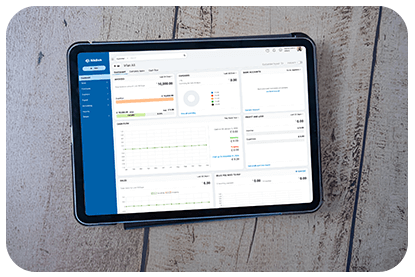19 April 2024
Financial Accounting Basics: A Guide for Beginners (2025)
Mastering the fundamentals of financial accounting is no longer optional it’s a critical skill for anyone aiming to succeed in today’s fast-paced financial environment. Whether you’re launching a startup, managing personal budgets, or seeking to understand your company’s financial performance, knowing how money flows through an organization is essential.
In 2025, data-driven decision-making is at the heart of every successful business. The ability to analyze, interpret, and act on financial information can mean the difference between growth and stagnation. This comprehensive guide will equip you with a clear understanding of finance account, break down vital reports like the profit and loss statement, and show how accurate accounting fuels long-term success. Let’s explore the foundational tools you need to make confident and strategic financial decisions
What is Financial Accounting?
Financial accounting is the process of recording, summarizing, and reporting a company’s business transactions through financial statements. These statements are used by external parties such as investors, regulators, and creditor to understand the financial health of a business.
Unlike managerial account, which is used for internal decision-making, finance account is focused on historical data and is governed by standardized rules such as GAAP (Generally Accepted Accounting Principles) or IFRS (International Finance Reporting Standards).
Why is Financial Accounting Important?
Financial accounting provides a clear and transparent view of an organization’s performance and finance position. Here’s why it matters:
- Decision-Making: Investors and lenders rely on financial reports to assess risks and returns.
- Regulatory Compliance: Accurate reporting is legally required in most countries.
- Business Planning: Business owners use financial data to plan budgets, set goals, and monitor performance.
- Trust and Transparency: Clear financial reports build confidence among stakeholders.
In short, accounting and finance professionals use finance accounting as a tool to create trust and clarity in business operations.
Key Principles of Financial Accounting
To understand the basics, here are the fundamental principles that guide financial accounting:
1. Accrual Principle
Revenues and expenses are recorded when they are earned or incurred, not when cash is exchanged.
2. Consistency Principle
Businesses should use the same accounting methods from period to period to ensure comparability.
3. Going Concern Principle
Assumes the business will continue to operate in the foreseeable future.
4. Matching Principle
Expenses should be recorded in the same period as the revenues they help generate.
5. Conservatism Principle
Accountants should choose solutions that result in lower profits until more certainty is available.
Essential Financial Statements
The core of financial accounting revolves around three primary financial statements:
1. Profit and Loss Statement (Income Statement)
The profit and loss statement shows a company’s revenues and expenses over a specific period — typically monthly, quarterly, or annually.
Key Components:
- Revenue: Total income from sales or services
- Cost of Goods Sold (COGS): Direct costs of producing goods
- Gross Profit: Revenue minus COGS
- Operating Expenses: Costs like rent, salaries, and utilities
- Net Profit (or Loss): Final profit after all expenses
This statement helps determine whether a business is making or losing money.
2. Balance Sheet
The balance sheet provides a snapshot of a company’s financial position at a specific point in time. It shows what the company owns (assets), owes (liabilities), and the owner’s equity.
Formula:
Assets = Liabilities + Equity
3. Cash Flow Statement
Tracks the flow of cash in and out of the business. It is divided into:
- Operating Activities: Core business operations
- Investing Activities: Purchases of assets or investments
- Financing Activities: Loans, repayments, and dividends
Each statement tells a different story and is critical for comprehensive financial analysis.
Understanding Debits and Credits
A key concept in financial accounting is the use of debits and credits in double-entry bookkeeping. Every transaction affects at least two accounts:
- Debits increase asset or expense accounts, and decrease liability or equity accounts.
- Credits do the opposite.
For example, if a business takes out a loan:
- Cash (asset) increases → Debit
- Loan payable (liability) increases → Credit
Mastering this system ensures that your books remain balanced.
The days of spreadsheets are fading fast. Today’s financial accounting tools are cloud-based, automated, and integrated with other business systems.
Popular accounting software in 2025 includes:
- QuickBooks Online
- Xero
- Zoho Books
- QuickZeros Books
- Wave (for freelancers and small businesses)
These platforms help businesses manage invoicing, track expenses, generate reports, and maintain compliance.
What are Financial Accounting Advisory Services?
As accounting standards and regulations grow more complex, many companies turn to financial accounting advisory services for expert help. These services support businesses in:
- Navigating changes in GAAP or IFRS
- Managing mergers, acquisitions, or restructures
- Preparing for audits or IPOs
- Improving financial reporting systems
- Implementing automation and analytics
Whether you’re a startup or an established corporation, advisory services can ensure accuracy, compliance, and efficiency in your financial processes.
Career Paths in Financial Accounting
If you’re considering a career in accounting and finance, financial accounting is a solid starting point. Common roles include:
- Junior Accountant
- Financial Analyst
- Accounting Assistant
- Auditor
- Controller
- CFO (Chief Financial Officer)
Certifications such as CPA (Certified Public Accountant), ACCA, or CFA can further boost your credibility and career prospects.
Common Mistakes Beginners Make
If you’re just starting out with financial accounting, watch out for these beginner errors:
1. Mixing personal and business finances.
Always maintain separate accounts to ensure accurate reporting and easier auditing.
2. Ignoring reconciliation
Regularly reconciling your books with bank statements prevents fraud and errors.
3. Not understanding cash vs. accrual
Choose the right method from the beginning switching later can be tricky.
4. Failing to back up data
Always use software that automatically backs up your records or do it manually on a secure server or cloud.
Tips for Mastering Financial Accounting
- Take a course: Free platforms like Coursera, Khan Academy, and edX offer beginner courses.
- Read financial reports: Study public companies’ annual reports to see real-world examples.
- Practice regularly: Use sample transactions to create your own financial statements.
- Stay updated: Follow changes in financial reporting standards, especially if you operate internationally.
Read More About: Financial Express: Fast-Track Your Path to Financial Success
Final Thoughts
Whether you’re an entrepreneur, student, or professional, understanding financial accounting is a valuable asset. It’s the language of business a skill that empowers you to make smarter decisions, avoid costly mistakes, and drive long-term success.
By mastering the basics, familiarizing yourself with key reports like the profit and loss statement, and leveraging the support of financial accounting advisory services, you’ll be well on your way to financial clarity in 2025 and beyond.




